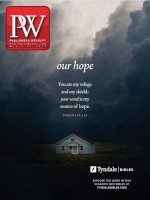When I first got a job as a bookseller at Malvern Books, a small independent bookstore in Austin, Tex., I thought it would be roughly akin to working at a major chain: I’d stand behind the counter and ring people up, but without the discomfort of having to upsell memberships. It was through observing my gifted coworkers that I learned that bookselling is an art. At first, I wasn’t used to customers asking me for book recommendations and often felt like I was stumbling over my words. Once I started to think of myself as a sort of matchmaker, I began to have fun.
Malvern is unique in that we sell new books, mostly fiction and poetry, from small and independent presses exclusively. A good portion of the store is devoted to books in translation. When I first walked in, as a customer, I was astonished to see not just a few shelves labeled “poetry” but an entire wall. As a poet, I was in heaven.
When I became an employee, I’d often watch people do a quick loop around the store and leave, disappointed, I believed, because we don’t stock the latest bestsellers or books from the Big Five (or Big Four) publishers, and therefore they didn’t recognize our titles. But for customers who were open to suggestions, I had the joy of matching readers with authors they were not aware of.
Sometimes the handselling stakes were high. Once a frazzled looking young woman told me that she was about to spend two weeks “trapped” with her conservative family for the holidays. I knew just the ticket—an engrossing feminist book about a 1950s Hollywood starlet who’d lived a wild life and experienced an unfortunate fall from grace.
Another man announced that he’d just fallen in love and was looking for poems. He asked for two poetry book recommendations: one to celebrate his newfound amour and another to protect him from heartbreak if the relationship failed. “I’ve been hurt before,” he said. I handed him the perfect antidote (which he later told me worked like a charm).
The more I worked at the store, the more I began to notice that people yearn for connection beyond book recommendations. Even before the pandemic began, I’d answered phone calls that didn’t have much to do with the books at all. One elderly woman wanted help looking up something on the internet, which I happily obliged. Another gentleman wanted information about how to get out of a parking ticket. A fair number of callers want to know how to get their books published, in which case I’d refer them to an organization like the Writers’ League of Texas for a sense of community and support.
It can make people feel vulnerable to ask about books in subjects such as marital problems, grief, rape and incest, and substance abuse, or about books on how to deal with suicidal thoughts. Our store’s collection doesn’t serve these needs, but I recommend other local bookstores—BookWoman, Black Pearl Books, BookPeople—that people can turn to for personal recommendations, even if it means losing potential Bookshop.org sales.
When Malvern opened for private shopping appointments following the onset of the pandemic, customers commented on how nice it was to browse again. People connect to bookstores as physical spaces. Browsing is a meditative state that I know well. As a broke graduate student, I would often browse at Malvern, not able to buy anything but leaving feeling calm, revitalized, and better able to handle a chaotic world.
The problem with browsing online is that algorithms are based on similarities: if you liked this, you’ll like this. This model prevents people from trying something new. I’ve recommended poetry to people who haven’t read poetry for years. Some confess they’re afraid of it. I’m presented with an incredible opportunity to say, “Here’s something that won’t remind you of the old chestnuts you read in high school.”
For me, bookselling has become a second MFA degree; reading more widely has made me a better writer. I read books from all over the world translated from other languages. I read books by BIPOC and LGBTQ+ authors, which means my book recommendations have become more expansive—in short, less white. If I can connect a reader to an author—who may become, in a sense, a friend, a mentor, a bridge to other authors—that means the world to me.
Of course, as an employee at an independent bookstore, I want us to have glorious daily sales, but I know it’s not just about dollar signs. Sometimes it’s about recommending a Black-owned bookstore for books about anti-racism. Sometimes it’s about chatting on the phone with someone who’s been housebound since last March—not about books so much but about isolation, because people need to feel connected, because that’s what it means to have hope.



 Volume 268
Issue 11
03/15/2021
Volume 268
Issue 11
03/15/2021





